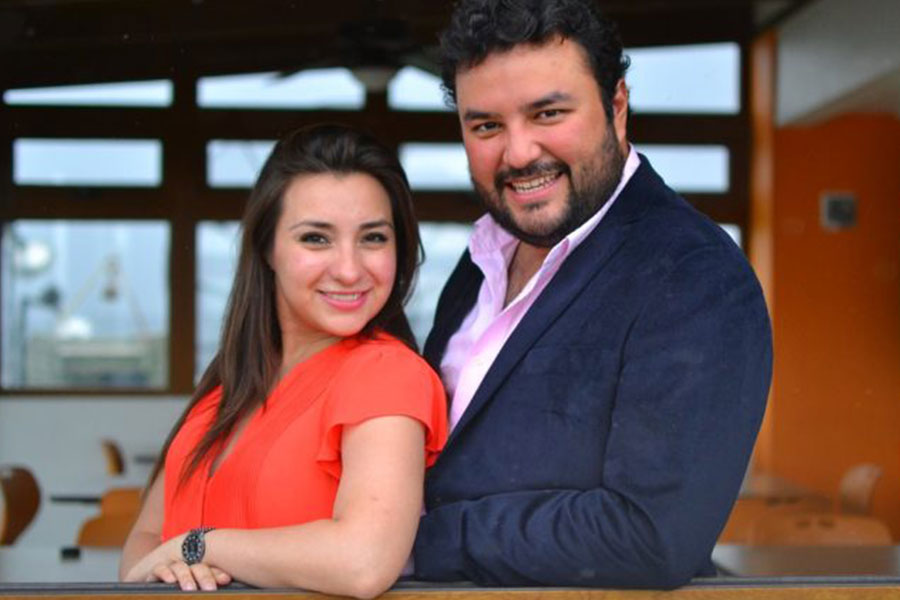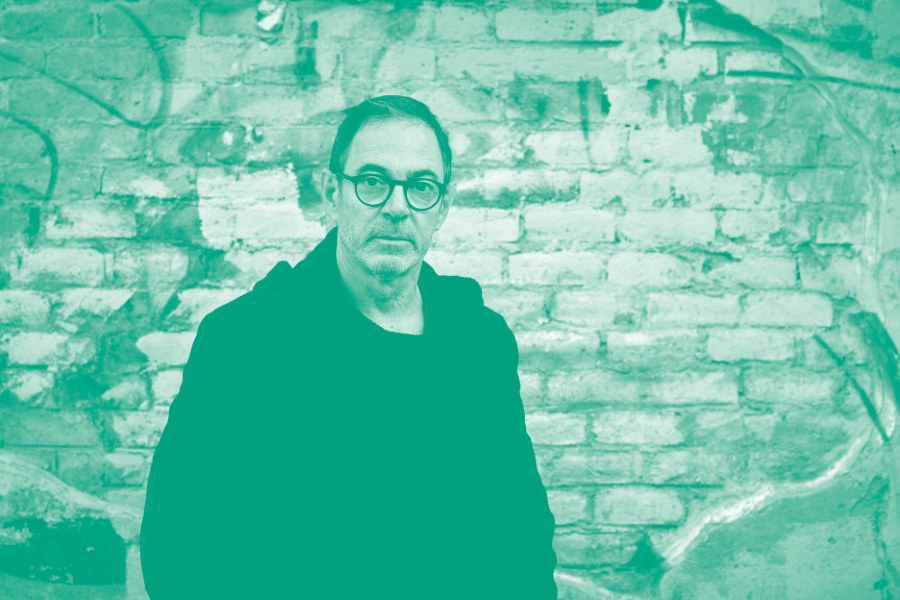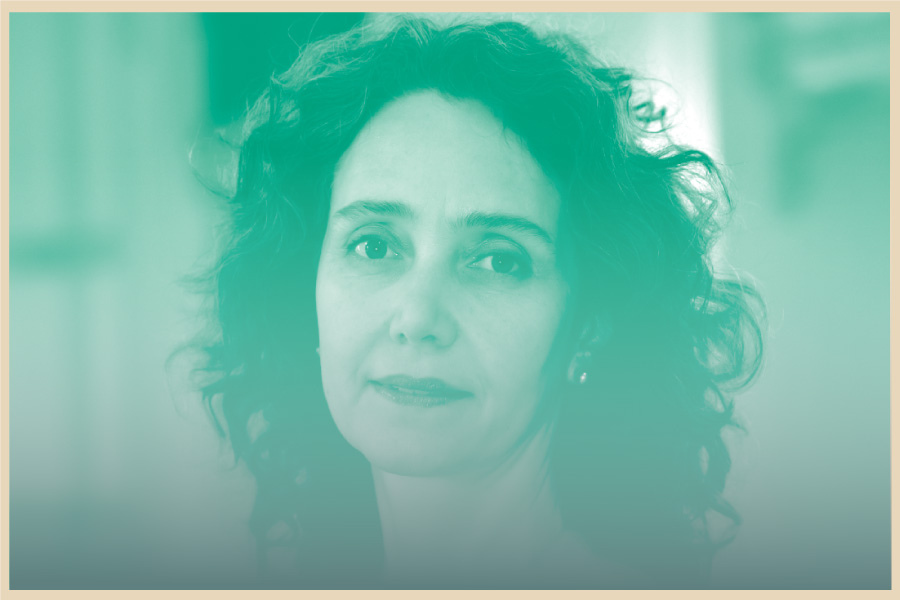Entrevista con Mario Chang y María José Morales de Querido Arte, Compañía de ópera de Guatemala

«Por medio de la ópera y la educación apoyamos la transformación de Guatemala», María José Morales y Mario Chang, fundadores de Querido Arte.
Querido Arte: Compañía de Ópera de Guatemala se funda en el año 2016 por el tenor Mario Chang y la Soprano María José Morales. Ambos nacidos en Guatemala, buscaban por medio de esta iniciativa, desarrollar, formar y difundir la ópera en Guatemala.
Su sueño es hacer de Guatemala un referente en Latinoamérica y el mundo a través de producciones de alta calidad. Verdaderos proyectos integrales de desarrollo para artistas que impacten de forma positiva en la sociedad, transformando vidas a través de la ópera.
Mario y María José conversaron con nosotros y nos contaron sobre el proceso de formaciòn de la compañía, sus efectos en la comunidad, sus motivaciones para entrar a la Red OLA y un poco de sus carreras profesionales.
¿Cuál fue la motivación que los llevó a fundar Querido Arte y cuáles son los principales objetivos de la Fundación?
Querido Arte Ópera de Guatemala nace con un objetivo en mente: hacer de Guatemala un referente en Latinoamérica y el mundo a través de producciones de alta calidad, proyectos integrales de desarrollo para artistas, presentaciones que rescaten la tradición y belleza de la ópera y eventos que impacten de forma positiva a nuestra cultura y sociedad, transformando vidas a través de la música… UNA ÓPERA A LA VEZ.
Querido Arte es producto de la necesidad de querer desarrollarnos como cantantes y como respuesta a la escasez de oportunidades de desarrollo. Nosotros (Mario y Majo) teníamos un sueño que era imposible seguir pues el ambiente lírico era casi inexistente en nuestro país. Tuvimos una época de oro hace aproximadamente un siglo, en un teatro de ópera llamado Teatro Colón (o Rafael Carrera) en donde se presentaban temporadas de ópera y cuentan los abuelos y libros que la gente silbaba ‘La Donna e Mobile’ en las calles. Era una costumbre común el poder asistir a las óperas a ver las grandes producciones en ese hermoso teatro.
Lastimosamente, el lugar fue dañado por un terremoto y luego demolido por el siguiente presidente. Así perdimos un gran capítulo en nuestra historia cultural y décadas valiosas para el desarrollo de la lírica en Guatemala.
Los años que siguieron entre 1923-1998 fueron años en donde venían compañías de zarzuela y ópera extranjeras a presentar sus temporadas. Venían, presentaban y se iban. El Estado de Guatemala nunca creó un cuerpo estable que funcionara como compañía lírica y tampoco se le dio seguimiento a la formación de los artistas y de oportunidades. Un largo conflicto armado interno tampoco contribuyó en los ánimos, a que se desarrollara esta rama del arte en su esplendor.
En 1998 un barítono guatemalteco llamado Luis Felipe Girón May comenzó junto con un grupo de empresarios un renacer en el ámbito de la ópera. De esta manera, empezaron a venir a Guatemala con más frecuencia compañías extranjeras y se empezaron a presentar de forma más seguida producciones de ópera. Estas producciones se presentaban en locaciones al aire libre en Antigua Guatemala y otras. En el 2006 se presentó, ya en el nuevo Teatro Nacional, el Centro Cultural Miguel Ángel Asturias (con capacidad de 2000 personas y construido en los ‘60s), por primera vez en este escenario, una Traviata, empezando con esto, una nueva ronda de grandes producciones traídas del extranjero que cesó en el 2011.
Paralelo a estos esfuerzos, se han presentado producciones de bolsillo al piano y con orquestas reducidas en otros lugares de menor tamaño con iniciativas loables en pro del desarrollo de este arte.
Nosotros empezamos en el 2009 con conciertos, galas con orquesta, recitales, giras de medios y actividades de difusión de la ópera. Fue en 2016 que logramos con Querido Arte conseguir el apoyo necesario para poder ser la primera compañía lírica dirigida por jóvenes guatemaltecos con la mira de crear una industria aún inexistente. Así fundamos un coro de la ópera, orquesta de la ópera y un equipo de trabajo sólido buscando inspirar, formar, impactar y expandir esta forma de arte en nuestro país.

Ya cumplieron los 10 años de existencia. ¿Cómo creen que ha beneficiado la Compañía a la lírica en Guatemala? ¿Cual es la realidad de la ópera en Guatemala hoy?
Desde que empezó Querido Arte hemos podido observar muchos cambios en el ámbito de la lírica en Guatemala. En primer lugar, anteriormente no se había llenado la capacidad completa de la Gran Sala del Teatro Nacional para un evento de este tipo (2000 butacas). En las 4 producciones completas que hemos realizado (Rigoletto, Elixir de Amor, La Bohème y La Traviata) se han vendido los boletos de taquilla en su totalidad, lo cual sienta un precedente y nos da un indicativo de cómo el mercado de la ópera se ha ido desarrollando con cada presentación.
Nuestras óperas son grabadas, subtituladas y transmitidas en la televisión abierta nacional, con lo cual, hemos llegado a miles de personas en el interior de la República que no tienen la oportunidad de asistir al teatro, llevando cultura a todos los rincones de Guatemala.
También hemos tenido un crecimiento sostenido en personas que asisten a las audiciones que abrimos y en las personas que quieren ser parte de cada proyecto. Cada año se multiplican las aplicaciones que recibimos. Por ejemplo, en La Bohème que ha sido la ópera más grande que hemos realizado hasta el momento, tuvimos un equipo artístico y técnico conformado por 405 personas. Todos ellos involucrados en cada uno de los departamentos que hemos creado para las producciones (staff, vestuario, escenografía, luces, logística, coro, orquesta etc.) Estas producciones están dando trabajo y oportunidades a muchísimos artistas jóvenes. Para las audiciones, nos llegan cientos de aplicaciones, lo cual tampoco había sucedido con anterioridad.
Hemos visto también un cambio en el tipo de gente que asiste y participa en nuestros proyectos. La mayoría de las personas que nos buscan son jóvenes entre 16-36 años de edad al igual que el público que nos acompaña para las presentaciones. Eso nos llena de alegría ya que es una nueva generación la que se está formando y está adquiriendo el gusto por esta forma de arte.
Por medio de las óperas en específico, también se está apoyando a la transformación de Guatemala por medio de la educación: todo lo recaudado con los boletos vendidos de las óperas se destina a la Fundación Ramiro Castillo Love, en su labor por erradicar el analfabetismo en nuestro país, el cual es todavía de un 12%. Con lo recaudado en las óperas se ha logrado dar becas a mujeres y niños para que puedan aprender a leer y escribir y de esta forma cambiar sus vidas. Todo esto siendo posible gracias a un grupo de empresarios visionarios, nuestros queridos patrocinadores y amigos, que nos apoyan en este emprendimiento y al desarrollo de la cultura y la educación, la cual, es la base de una sociedad sana.
Querido Arte ha velado por darle seguimiento a la formación de los artistas que participan con nosotros y en buscarle espacios de desarrollo por medio de producción de eventos en donde se puedan desarrollar, becas de estudio y viajes, talleres de técnica, clases con maestros y artistas que nos visitan del extranjero y actividades de apreciación de la ópera. Ha sido una tarea muy linda poder observar cómo estos jóvenes talentos han ido mejorando, no solamente en su voz, sino en su formación integral, en sus valores y compromiso con su arte.
Por último, todos estos logros han ayudado también a inspirar a otros artistas a tener sus propias iniciativas, motivado a cientos de jóvenes a querer ser parte de este movimiento en pro de la ópera, y a querer prepararse para poder tener un futuro en este campo en cualquiera de las artes que involucran este tipo de arte (stage managing, vestuario, escenografía, músicos y cantantes etc.) Actualmente existen más guatemaltecos poniendo en alto a nuestro país en el extranjero y empezando a tener oportunidades para iniciar su carrera, y eso es algo que nos hace sentir muy felices y orgullosos porque definitivamente es una realidad muy distinta a la que nosotros vivimos hace 10 años. Definitivamente encontramos un antes y un después.

Querido Arte ha desarrollado proyectos y programas como el Ópera Club, Una historia de Navidad, y los programas especiales como el Ópera Camp y el Ópera Kids. ¿Cómo nacen estas iniciativas y cómo los ha recibido la comunidad y los artistas guatemaltecos?
En Querido Arte creemos en que podemos transformar a través de la música y creemos que esta tiene que ser accesible para todos los guatemaltecos. Todos estos proyectos han sido desarrollados para diferentes edades y con diferentes propósitos. La mayoría de estos proyectos tienen fines educativos y de impacto social. Por ejemplo: con Una historia de Navidad montamos repertorio navideño para cantar en los hospitales públicos de la Capital llevando alegría a los pacientes y personal médico del lugar. Con Opera Kids, estamos formando niños entre 8-14 años que tienen interés en la ópera con repertorio adecuado para sus edades y como un programa de introducción a la lectura musical y al arte lírico. Con el Ópera Club, que es un taller de apreciación de la ópera, nos reunimos, damos una charla dinámica al grupo, vemos la ópera juntos y la discutimos. La Serenata de la Asunción es un concierto gratuito anual de música sacra que hacemos en la Catedral Metropolitana en donde participan decenas de artistas y asisten miles de personas. Este año también, aproximadamente 20 de nuestros chicos fueron aceptados para formar parte del Coro Mundial de la Juventud en la visita del Papa Francisco a Panamá. El maestro Plácido Domingo en su visita a Guatemala nos invitó con nuestra orquesta a acompañarlo en su concierto. Fuimos invitados a Guadalajara este año al primer Encuentro Internacional de Zarzuela de la Asociación Zarzuela por el Mundo, un proyecto para la difusión de la Zarzuela apadrinado por el Maestro Plácido Domingo. Entre otros proyectos que tenemos.
En cada una de estas actividades hemos tenido una gran convocatoria y tratamos de que se vuelvan tradiciones. Nuestros proyectos siempre son bien recibidos gracias a Dios y cada vez más personas se quieren unir a las actividades. Actualmente nos encontramos buscando financiamiento para poder mantener estos programas, apoyar a más personas y concretar otras ideas para desarrollarlas a lo largo del año. Todas estas iniciativas han atraído nuevos públicos y abierto un mundo de posibilidades musicales para los artistas y para el público en general.
¿Cuál es motivación de integrar la Red OLA? ¿Consideran que el trabajo en red es un aliado para el futuro de las artes escénicas?
El haber sido invitados a formar parte de esta red es para nosotros un gran honor, en especial por ser nosotros una casa de ópera joven y emergente en un ambiente que no tiene tradición de ópera. Contar con el consejo, intercambio, ejemplo y experiencia de los demás miembros es invaluable para nosotros y fundamental para nuestro crecimiento.
El trabajo en red no es sólo un aliado importante, es fundamental para que nuestra forma de arte pueda permanecer a través del tiempo. Es responsabilidad de todos los que amamos la ópera el podernos unir y crear una comunidad fuerte que ayude a que las producciones sean más accesibles y más difundidas, con mejores recursos e intercambios, además de que con estas alianzas estratégicas se pueden crear proyectos que tengan un impacto aún mayor en la región y en cada uno de los países.
En nuestro caso en particular, un gran aliado ya que necesitamos apoyo, guía y capacitación para poder crecer y desarrollarnos de una manera adecuada.

Mario: Tus participación en la ópera es extensa a nivel internacional. Te has presentado en escenarios tan importantes como lo son el Metropolitan Opera de Nueva York, Carnegie Hall, Washington National Opera, Frankfurt Opera, LA Opera y has cantado en galas y recitales en Puerto Rico, San Petersburgo, Tel Aviv, Berlín, Bonn, Ecuador, entre otras. ¿Por qué decidiste volver a Guatemala con un proyecto que tiene mucho de emprendimiento y un claro rol social.
Estoy completamente enamorado de mi país y de la ópera. En Guatemala existe muchísimo talento y hay muy pocos espacios para desarrollarse. Siempre quise crear un proyecto para ayudar a que se desarrolle la ópera y apoyar a mis compañeros para que puedan cumplir también sus sueños. Siento una enorme responsabilidad de crear una plataforma para que la ópera en Guatemala pueda crecer. He experimentado en carne propia, cómo la música puede cambiar las vidas de las persona, como cambió la mía. Lo hemos visto en muchos de los artistas y colaboradores de nuestros proyectos: en vez de estar en malos pasos, están hasta altas horas de la noche aprendiendo música, hemos visto cómo han desarrollado un sentido de disciplina, de respeto hacia los demás y sensibilidad, cómo se han abierto puertas y posibilidades y eso es transformador. Hemos visto cómo hemos podido hacer producciones de una calidad muy alta, aún sin tener una infraestructura tan sólida como lo tienen otros países, gracias a las ganas que todos ponen por querer hacer las cosas con excelencia.
Mi sueño es que todos en Guatemala tengan la oportunidad de experimentar la música y los efectos y beneficios que tiene y que todos puedan tener acceso a ella. Antes no existía esta plataforma donde estamos ahora y eso nos da un reto constante para poder seguir innovando e implementando proyectos para el desarrollo de la juventud y la cultura. También me motiva mucho poder abrir camino para que otros puedan desarrollar sus dones en su máximo potencial. Sabemos que podemos hacer una diferencia y dejar un legado con lo que amamos hacer una ópera a la vez.
Soy un creyente firme que la cultura debería ser un derecho al que todos deberíamos poder tener acceso y no un privilegio reservado para algunos como muchos piensan.
María José: A finales del 2018 debutaste en el Carnegie Hall de Nueva York. Has cantando en galas en Saltillo, Coahuila, México; Blacksburg y Middleburg Virginia y Nueva York, Frankfurt, Alemania y Tel Aviv, Israel, San Salvador, Quetzaltenango, San Pedro Sula, Honduras y en la Ciudad de Guatemala. ¿Por qué tomaste un rol de emprendedora y cómo ha sido esta experiencia siendo mujer?
Siempre he creído que si uno tiene un talento, tiene la responsabilidad de desarrollarlo y ponerlo al servicio de los demás y eso es lo que me empuja cada día a trabajar por Querido Arte.
Desde siempre he sido muy activa en el desarrollo de proyectos y en la producción de eventos y oportunidades. Paralelo a mi canto, estudié Diseño Gráfico en Comunicación y Publicidad lo cual me ha permitido aplicarlo para crear una estrategia completa para nuestro sueño de vida con Mario: que nuestro país pueda ser un referente en la ópera.
Tenemos un teatro nacional con gran aforo, también personas con talentos extraordinarios, juventud y ganas de hacer las cosas bien. Tenemos el potencial para poder ser una casa de ópera importante y todos estos primeros pasos son los que me motivan a idear nuevos proyectos para el desarrollo de los miembros de la compañía y de nuevos públicos.
Me ha tocado abrir puertas y convencer a muchísimas personas de que esto vale la pena ser apoyado, eso nos ha llevado mucho tiempo y esfuerzo pues no tenemos tradición en nuestro país para la ópera y al principio literalmente pensaban ¡que estábamos locos!. Ser mujer en este ámbito del emprendimiento cultural me ha servido de escuela para aprender a expresar mis ideas y proyectos con convicción y a trabajar fuerte para concretarlos con éxito. He tenido que ganarme el respeto de nuestros patrocinadores, público escéptico, medios de comunicación y directivos de instituciones estatales demostrando que se pueden hacer las cosas bien hechas cuando se hacen con amor, preparación y trabajo fuerte. Me ha tocado formar un carácter, a sacar todo mi liderazgo y estar segura y defender lo que creo. Ha sido un trabajo duro ser Directora Ejecutiva de Querido Arte pero este proyecto de vida en conjunto que tenemos con Mario ha sido una de las más grandes satisfacciones de mi vida. Ver el progreso que se ha tenido en nuestro campo, ver que mi país está resonando fuera y los cambios que los chicos han tenido en sus vidas, es de las mejores cosas que me han pasado.





